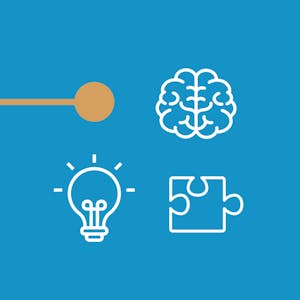Digital technologies are reshaping the global landscape, presenting both opportunities and challenges across sectors. The course "Intelligence Tools for the Digital Age" from IE Business School equips professionals with the essential skills and cognitive frameworks needed to thrive in an AI-driven, data-rich future.
Through a unique lens of intelligence analysis, participants will explore the evolving demands of the digital era and learn to harness augmented intelligence for strategic advantage. The program underscores the value of asking probing questions and adopting an intelligence analyst's mindset, offering a compelling blend of theoretical insights and practical tools.
Certificate Available ✔
Get Started / More Info
This course comprises four modules that delve into the essentials of intelligence analysis for the digital era, from understanding the digital landscape to acquiring cognitive frameworks and strategic thinking skills.
The first module, "A Toolkit for the Digital Future: Intelligence Analysis for the Business Professional," provides an overview of the course and delves into the essential skills needed for success in the digital age. Participants will explore the relationship between computing power and brain power, soft skills' increasing importance, and the fundamentals of intelligence analysis.
Module two, "The Intelligence Analyst’s Mindset," introduces participants to the critical mindset required for effective intelligence analysis. This module explores the intelligence cycle, the importance of disproving, and strategies for thinking straight, shedding light on cognitive biases in decision-making processes.
Module three, "Intelligence Methods: Analysis, Part One," focuses on macro actors, using the case of Chinese rare earth elements as a practical example. Participants will delve into different models for intelligence analysis, including the rational/unitary actor model and the personal & bureaucratic politics model, and explore their applications in understanding macro-level actors' behaviors.
The final module, "Intelligence Methods Analysis, Part Two," delves into micro actors, emphasizing the understanding of people and organizations. Participants will explore the placing technique, making deductions, and understanding the significance of placing organizations. The module concludes with insights on strategic empathy and market campaigns.
This course provides a comprehensive introduction to systems engineering, covering the holistic approach to designing, realizing, and managing complex systems.
Coaching for Learning, Leadership, and Change equips learners with the knowledge and skills to inspire and motivate others through compassionate coaching.
Reignite Employee Engagement introduces interactive levers to boost workplace engagement. It equips learners with practical strategies and tools for personal and...
Sharpen your product development skills and gain a foundational understanding of innovation, product design, and development principles in this specialization.